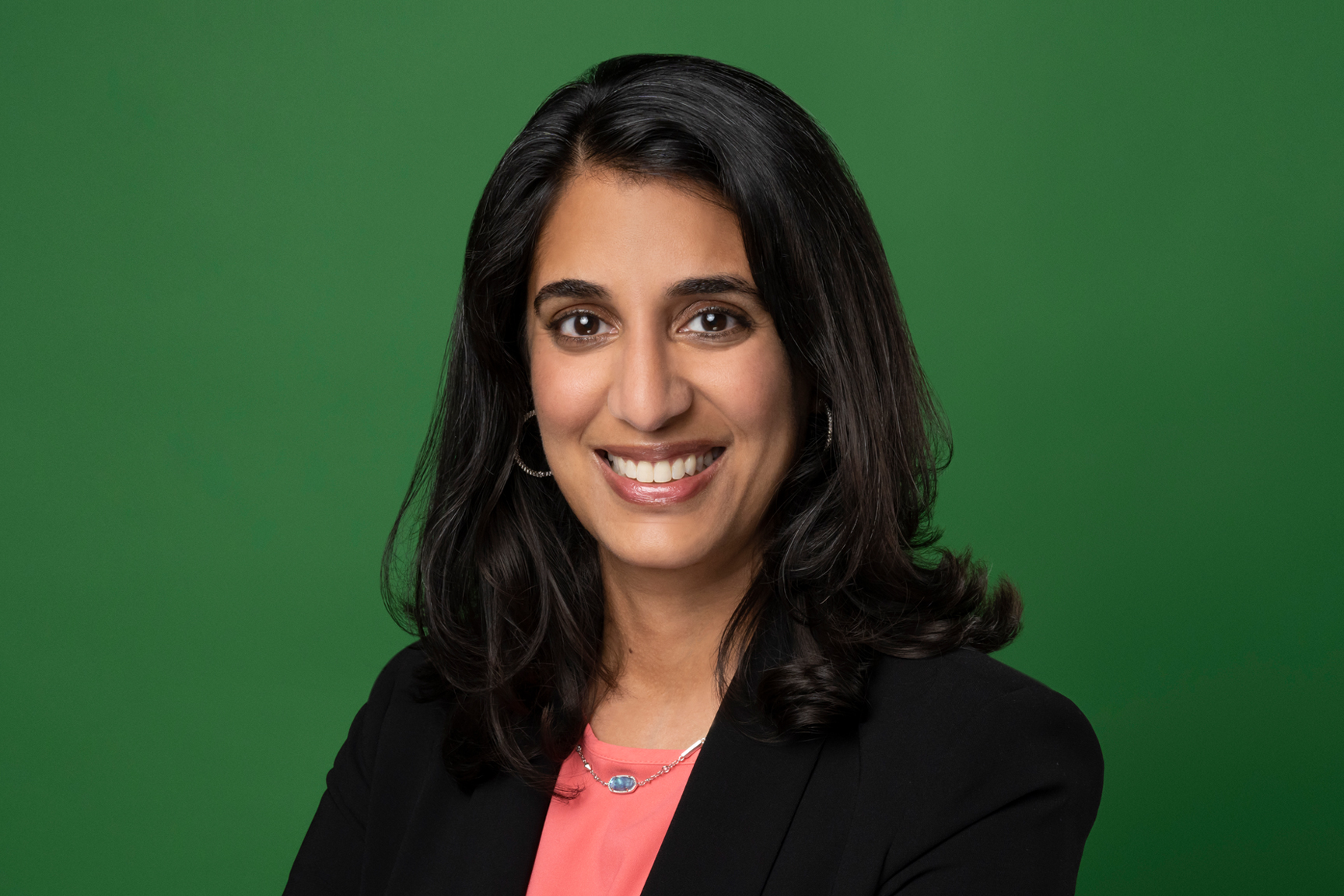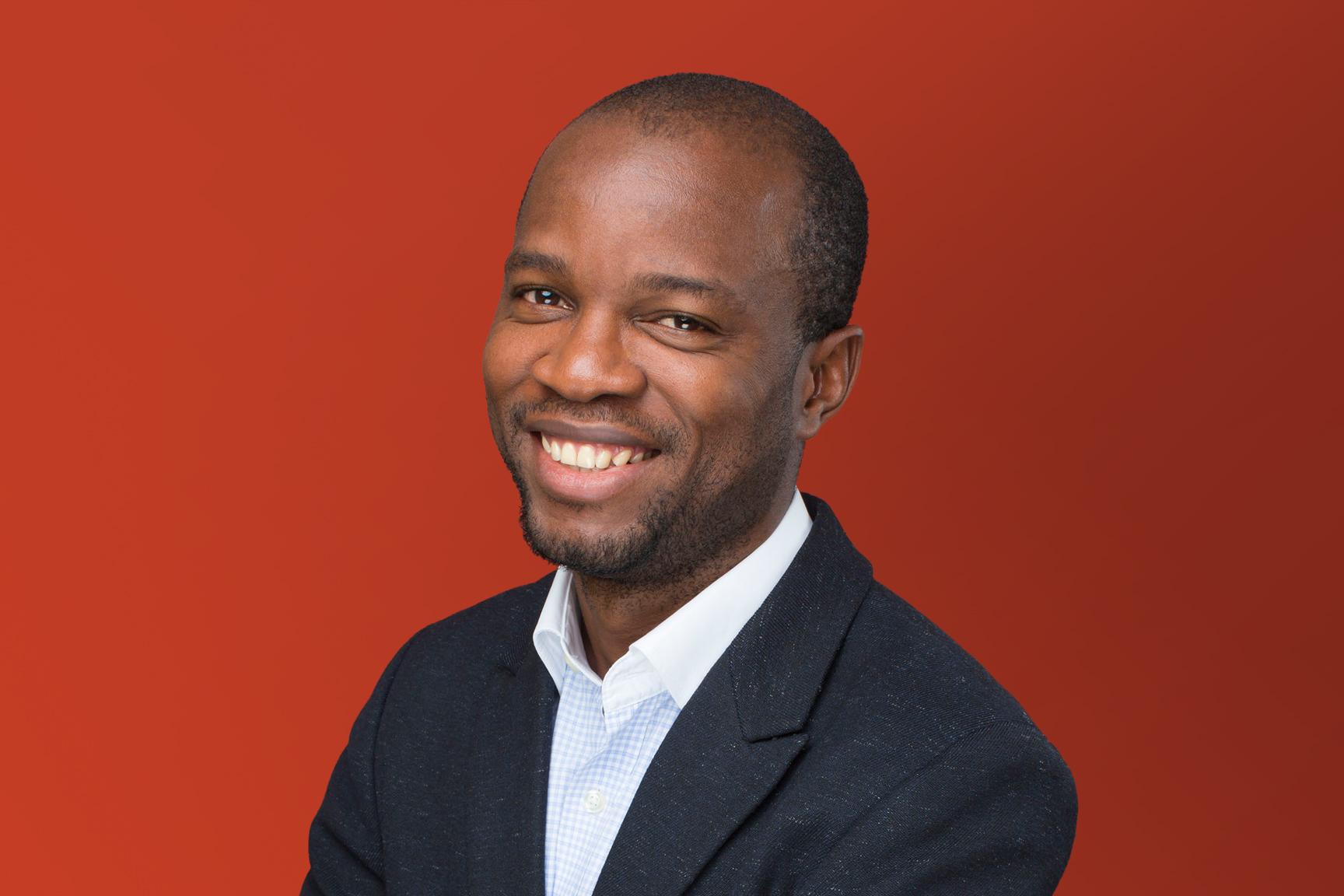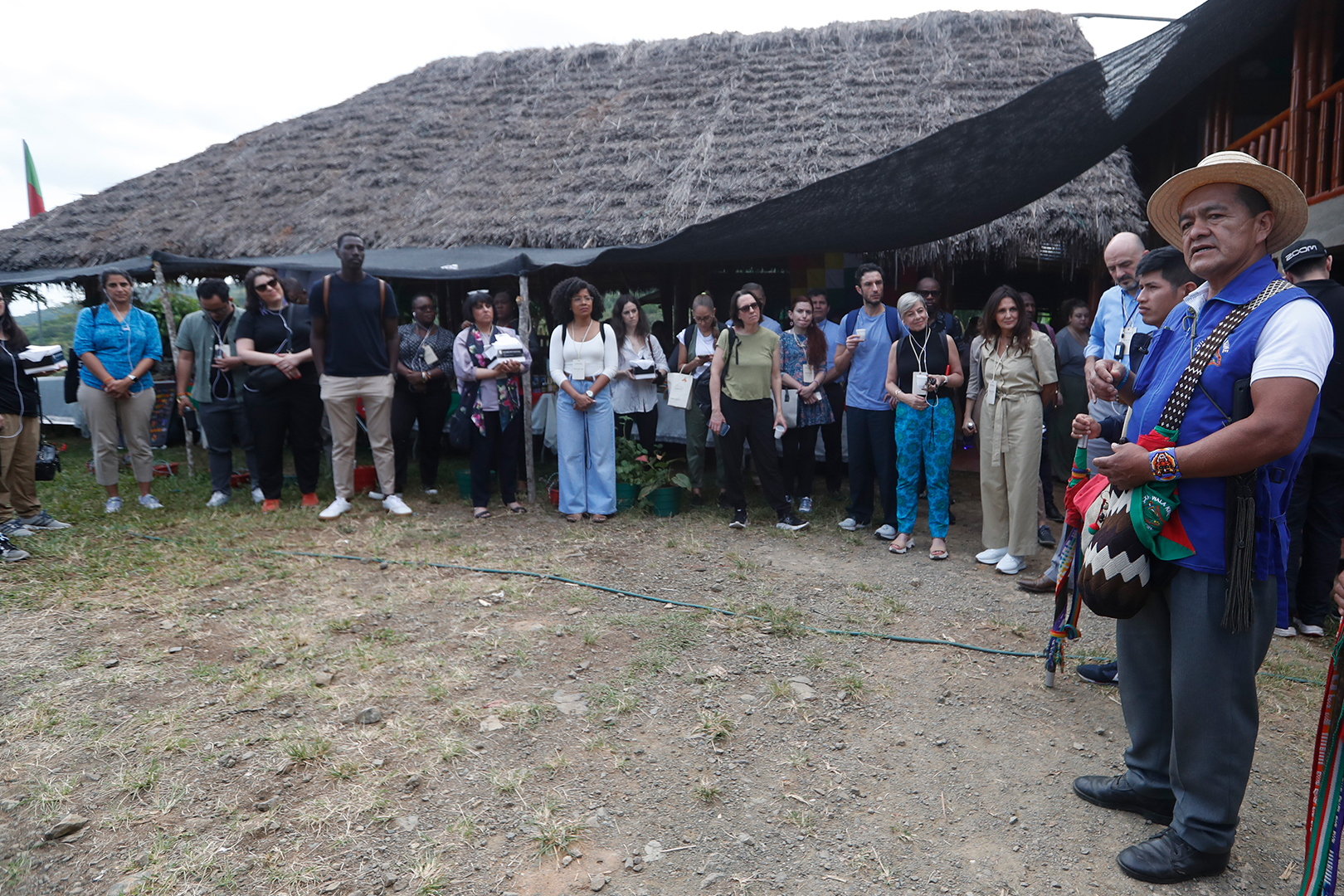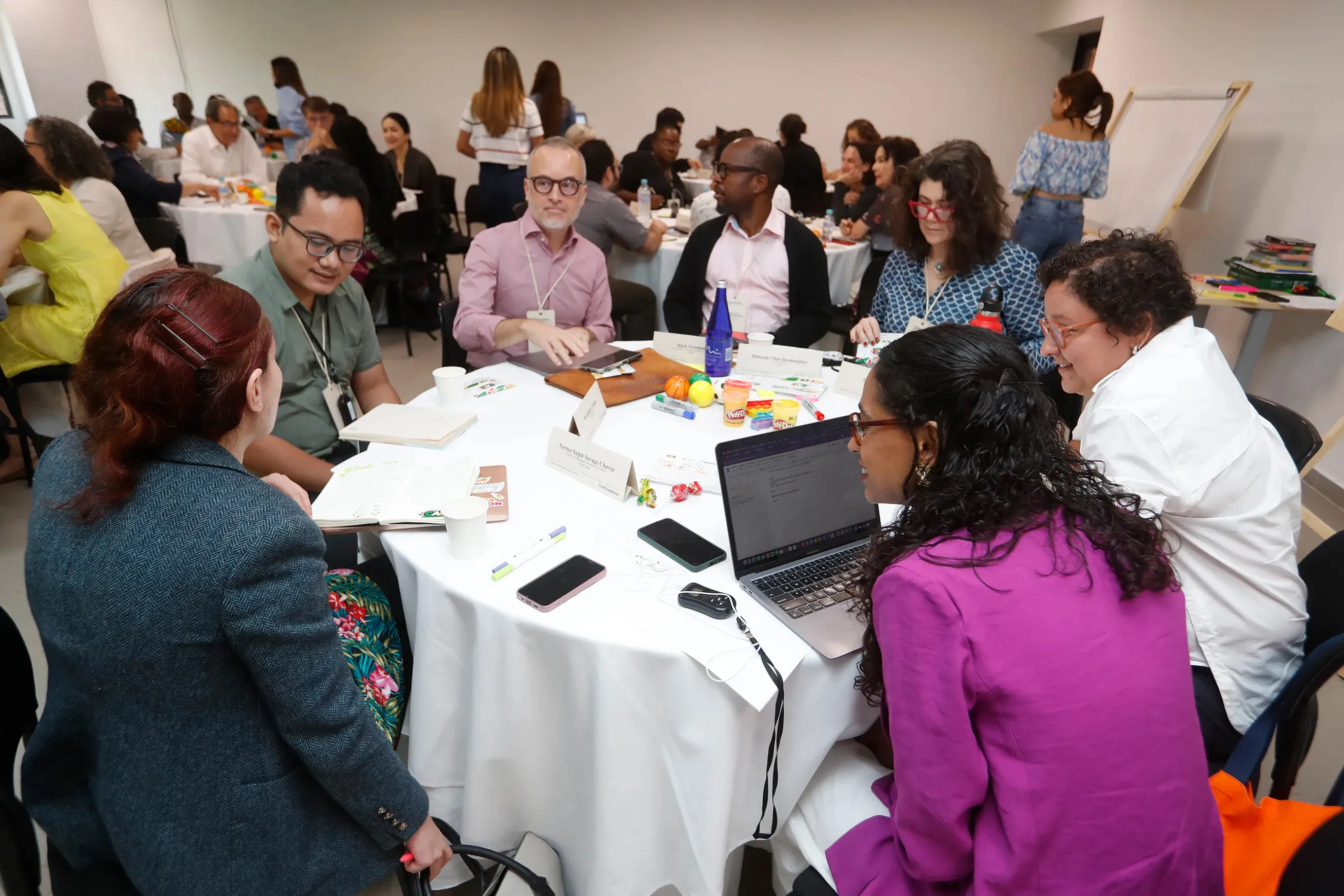Closing the Divide: Inside Our Global Initiative on Polarization
At times it feels the only certainty in our world is how many uncertainties we face. From the existential threat of climate change to widening economic disparities and challenges to democracy, our global social order feels more fragile and irresolute than ever. These rapidly changing times present us with many opportunities to reimagine a more just world, to work together to establish new systems of equality and prosperity—but they also threaten to divide us more than ever, to separate us through misinformation and othering or structural exclusion and dehumanization. Addressing the polarizing forces that exacerbate these divisions can be one way to help create a more just future.
Polarization is a hyper-problem: one that disrupts a society or political system’s ability to solve almost any other kind of problem. It prevents progress on crises that we in philanthropy are trying to solve. It can threaten many crucial elements of functioning society, including disrupting democratic elections, blocking productive policies, stoking hate speech, and entrenching discrimination. Left unchecked, it can accelerate authoritarianism, civil war, and genocide. Our partners at the Institute for Integrated Transitions (IFIT) define polarization as “a prominent division or conflict that forms between major groups in a society or political system and that is marked by the clustering and radicalisation of views and beliefs at two distant and antagonistic poles,” though there is not one universally accepted definition of the term.

Shireen Zaman
Program Officer, Building Institutions and Networks (BUILD)

Dabesaki Mac-Ikemenjima
Senior Program Officer, West Africa

At the Ford Foundation, we see how polarization exacerbates inequality around the world. We recognize its presence in every place and on every issue that we work on. And so we know that if we hope to end inequality, we must understand polarized contexts better so we can counteract them when they unfold and mitigate them where they already exist. We must learn more about how to reduce this problem so we can withstand it as a society, and work around it to achieve the shared dignity and prosperity we seek.
The Ford Foundation’s Global Initiative on Polarization, in partnership with IFIT, is a five-year effort to examine the harmful impact of polarization around the world. Launched in November 2021, it is working to create a global network of grantees, an ecosystem of learning, and a strategic set of effective practices, case studies, and tools that will help social justice leaders offset polarization and its impacts. The initiative aims to improve civil society’s ability to anticipate and counter polarization by identifying and connecting people who are working to combat it in different global contexts, and accelerating their ability to develop, test, and share effective practices. It also focuses on catalyzing new and enduring relationships and attracting additional resources into this field. Our methodology includes funding convenings and other opportunities for cross-collaboration; the development of knowledge, research, and resources; and supporting grantee organizations in multiple regions in the world.
All of our 29 Global Initiative on Polarization grantees are working to develop, test, and evaluate interventions in three primary strategic areas:
- Dialogues: This is the cultivation and maintenance of interpersonal relationships with those of opposing viewpoints. This is hard work to scale, but it’s an essential building block to greater empathy and tolerance.
- Narratives: This is an eye to the stories we tell ourselves, the disinformation campaigns that rile passions, and other communications. We aim to be smarter and more analytical about the narratives we engage with.
- Institutions: These include constitutions, electoral systems, and judiciaries. We seek to understand better how they are structured, reformed, and amended to foster inclusion and equity.
As we work to better understand polarization and support a proactive, productive network around its mitigation, the Global Initiative on Polarization has already yielded many lessons that provide some guideposts for our work. These learnings include:
1. To stem polarization, it is essential that we understand what can catalyze it—including our own actions.
As social justice leaders and funders, we must learn how to better identify in advance the major causes of uncertainty that can stoke polarization around the world, including climate change, pandemics, and migration. These phenomena can create divisions, especially in societies facing economic, racial, and other inequalities. We must prepare people working on these issues to anticipate and handle polarization so they are not caught unprepared by it.
This also means helping advocates become sophisticated about the work of “conflict entrepreneurs”—a term coined by author Amanda Ripley for people who are skilled at weaponizing identities and sowing division. They use polarizing tactics to distract from other problems, and they understand how to activate binary thinking (“us” vs. “them”) and create an “enemy other.”
Understanding the causes of polarization also requires those of us in philanthropy and social justice movements to turn the mirror back on ourselves. At Ford, we fund ideas, individuals, and institutions, and we see clear inequities and injustices that we seek to change. Reducing polarization requires us to not be neutral. Yet in this work, we must be diligent to ensure we do not make polarization worse through our own actions or rhetoric. Too often, those of us in philanthropy and social justice can fall reflexively into verbiage about “winning” the “fight,” language that can have harmful consequences. This awareness must also extend to the organizations we support; in philanthropy, we must all be aware of funding solutions-oriented and transformative work, not just doubling down on one viewpoint.
2. When it comes to polarization, how we work matters.
With such large-scale cooperative goals in mind, the Global Initiative on Polarization has been designed with a collaborative, cross-program structure. Many of the grants are nominated and co-designed by a Ford regional office or program team, including several in the Global South; this allows for greater recognition of local community leaders and recognition of sensitive regional contexts.
This was also a key reason why Ford partnered with IFIT on this initiative: For more than 10 years, IFIT has been actively involved in places that are managing polarizing conflict, including Colombia, the Middle East, and Mexico. IFIT has long-term understanding of mitigating conflict and established networks of place-based people who are doing that work as well.
Another throughline of the initiative’s learning activities is engaging seriously in thought leadership with young people to understand how they think about these issue areas, as they will be the ones in decision-making power someday. This, we hope, will soften inclinations toward thinking in dichotomies and seed opportunities for people to think across sectors.

3. Funding strategies to reduce polarization means working at the intersections of issues.
At Ford, we know that polarization intersects with every issue and inequality we are working to end, so this is reflected in our initiative’s grantmaking. Our Global Initiative on Polarization funds organizations working both within issues that Ford has long worked on—including natural resources and climate change, gender justice, protection of civic space, and development of ethical technology—as well as organizations working specifically on polarization itself.
This means some of our initiative’s grantees are studying how polarization works within climate change and protecting gender justice, and some study polarization itself as their chief concern. Some grantees are studying how to prevent polarization in the context of fair and democratic elections in Ghana, like the Media Foundation for West Africa, or they are studying how artificial intelligence can polarize societies, as the International Panel for the Information Environment does. Or they are focusing on how polarization feeds into identity-based violence, like Over Zero, or evaluating the ways in which intersections between religion and democracy have exacerbated polarization in Brazil, like the Institute for Studies of Religion.
This said, we do not aim to create a sector of social justice or philanthropy that treats polarization as a separate issue; rather, we believe we must better prepare the people working on issues that are most likely to be polarized—especially climate, gender, and democracy. We must help them identify when polarization is emerging, weave this knowledge into their existing work, and respond with strategies and networks that are efficient in minimizing it.
4. Reducing polarization is long-term work—and it will require language of unity and inspiration.
It’s not realistic to think that, through this initiative or any other, we’re going to end polarization. Polarization is a natural phenomenon that happens in societies, and it can ebb and flow but, like conflict, never be escaped entirely.
A clear lesson from the initiative so far is that people working to reduce polarization must present societies in polarized contexts with an idea of what they’re moving towards that is strong and compelling enough that people are willing to let go of rigid concepts or grievances they’ve previously prioritized. The question to all advocates and funders in the polarization space should be, “What are you moving towards, and how do you communicate that?”
This sort of long-term work is what philanthropy is uniquely positioned to support. Just as the long-term uncertainties that feed into polarization aren’t going away, the stalwart natures of philanthropies, with our patient capital and nongovernmental structures, must aid and abet the work that will steer society through the challenges of polarization. At Ford, we will continue to make investments throughout the life of this special initiative and prioritize continued learning, as well as using our partnerships and resources to help support the crucial, collective work of reducing and managing polarization.